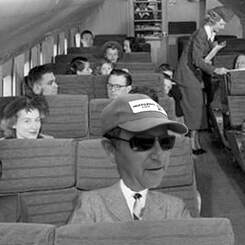Covid Confusion
You've been careful and didn't catch the dreaded Covid-19, your job is safe but you're advised to stay at home for an unknown period. Closely monitoring the News reports on radio, TV and mobile devices can be a total brain drain, something which the medicos term as 'cognitive load'. And it disturbs some enough to force them to rush out and buy rolls of toilet paper while others, are collecting groceries by the truckload.
Have you ever wondered where your last 24 hours went― or where the next 24 will take you? Being around home more often than ever before, have you heard your neighbour sawing, hitting nails, sliding planks between ladders prior paintwork? It doesn't suit everyone and they might just hop in their bubble on wheels in a bid to seal the lid on that can of worms wedged between their temples.
It appears that we all must decide― to focus more on our actions as the day unfolds. While out, do you keep your distance when at the supermarket? How will you scratch an itchy proboscis. When someone close-by sneezes do you rush to the Glen 20 aisle and begin fumigating? That feeling of awkwardness you have, might just be other people's nightmares too. The medical term is 'decision fatigue' and 'asymmetric loss function'. If we are aware that this is a common problem then that certain uneasiness might gradually fade away.
Based on behavioural patterns, decisions can affect any future choices depending on how many you already have stored in your mind. Let's say a short flight is arranged. Rain could be on the way so you consider putting a raincoat or umbrella in your luggage. You should reach the airport early― so how much sooner? Each decision made at the time of Covid-19 has been subject to an asymmetric loss function.
It seems that the greater the potential loss, the greater the level of discomfort we also unwillingly accept. By remaining calm and in-focus as this nasty virus recedes, it seems there are new decisions to keep us on our toes. Every rule, every choice we are familiar with will now need to be approached from a different angle. Family life is to receive more attention. Much will need re-inventing.
If we care about a future that is kind and safe then we need to focus more on those around us. We should be able to support one another― and we can listen. For our world to be a great place to live in we must learn the lessons that history provides us with and also to learn from each other―
What will happen to us tomorrow, or what will happen to our children. These are questions echoing in public spaces. It is no longer possible to live the way we have been living. It seems that now the entire fabric of life needs a re-adjustment― the life of the individual, social structure and governance.

Drat! I don't think it'll rain now...
